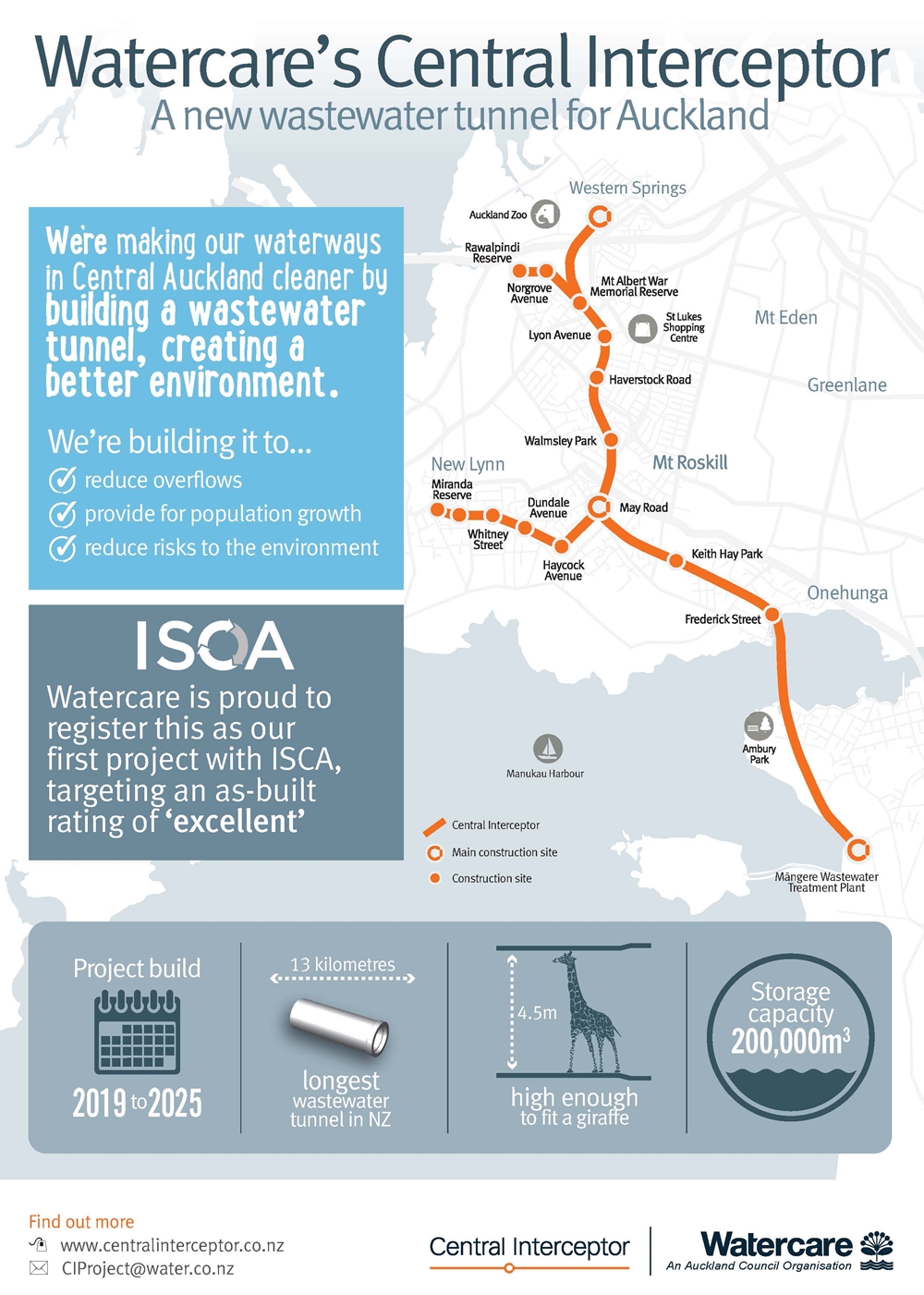Watercare’s Commitment to Sustainability

Watercare’s Commitment to Sustainability
Each day, Watercare provides lifeline services in the form of water and wastewater to 1.5 million Aucklanders. Watercare currently deliver 365 million litres per day of Aa-graded potable water and collect, treat, and dispose of 460 million litres of wastewater including trade waste daily. This ensures we protect Auckland’s environment and maintain public health. Watercare pride themselves on being trusted by their communities for exceptional performance, every day.
Why did Watercare decide to partner with ISCA for #ConnectNZ?
Watercare is committed to providing leadership in the sustainability space in New Zealand. Recently we have turned our attention to the impact of our infrastructure programme and we are keen to work with industry to improve our performance. We decided to partner with ISCA not only to show our commitment to building our infrastructure more sustainably but also to engage with the topics of climate, culture, and community which are in focus this year. Watercare have become ISCA members alongside our Council family and have registered our first project, the Central Interceptor wastewater tunnel.
What are you most looking forward to at the Summit?
It’s an exciting time to be looking at sustainability within infrastructure and this event is a great opportunity to engage with others in this space. We are looking forward to the Innovations and Impacts workshop to see what is new in the industry and how it could be applicable to our projects. This is also a great chance to delve deeper into other IS rated projects and we will be keeping our eyes open for highlights and lessons learnt. Of course, everyone is also excited for the CRL site tour and to be among the first to see the work they have done.
Which project are you most proud of and why?
We really pleased to be piloting the ISCA tool with our Central Interceptor (CI) Project. Sustainability is one of the core values on the CI, which is our largest infrastructure project. It is a 13 km long wastewater tunnel that will help clean up combined wastewater and stormwater overflows in our waterways, replace a section of ageing infrastructure, and provide capacity for growth in an ever expanding city.
We recently released our climate change mitigation and adaptation strategy and our 40/20/20 vision to achieve wins in sustainability, safety, and costs and we look forward to seeing more sustainably delivered infrastructure in the years to come. 40-20-20 will be discussed in more detail during Steve Webster’s keynote presentation on the 16th May at #ConnectNZ. We are immensely proud to be setting ambitious targets for both our capital infrastructure and the operational processes associated with delivering Aa-grade water and wastewater services.
What is Watercare’s approach to sustainability, environmentally and socially?
Water is a resource that connects Auckland. It is part of our identity and is an integral resource that Watercare has a responsibility to protect. We continually seek ways of working with our communities (including community liaison groups and environmental advisory committees) that benefits our local waterways and help our local areas to flourish. We work in partnership with Auckland’s Kaitiaki forum to establish values relating to healthy waterways and to challenge our thinking. In terms of construction of assets and delivering water and wastewater services, we are excited about ambitious emissions reduction targets and looking to improve the BAU standards around materials and waste, using our influence to improve the market which would have long-term positive impacts for sustainable growth.
What next for Watercare?
While we work to deliver sustainable outcomes on the Central Interceptor project which breaks ground in August 2019, we are also working to embed sustainable principles across our business to deliver our 40/20/20 vision. The vision looks at all of our infrastructure projects aiming for a 40% reduction in infrastructure carbon, a 20% reduction in cost and 20% year on year improvement in health and safety outcomes by 2024. This will require us to re-evaluate how we deliver infrastructure and will include partnerships to achieve these goals. We are also working towards goals for our two largest wastewater treatment plants (Mangere & Rosedale) to become energy neutral by 2025 and to reduce operational GHG emissions by 45% by the year 2030 which is really exciting.


